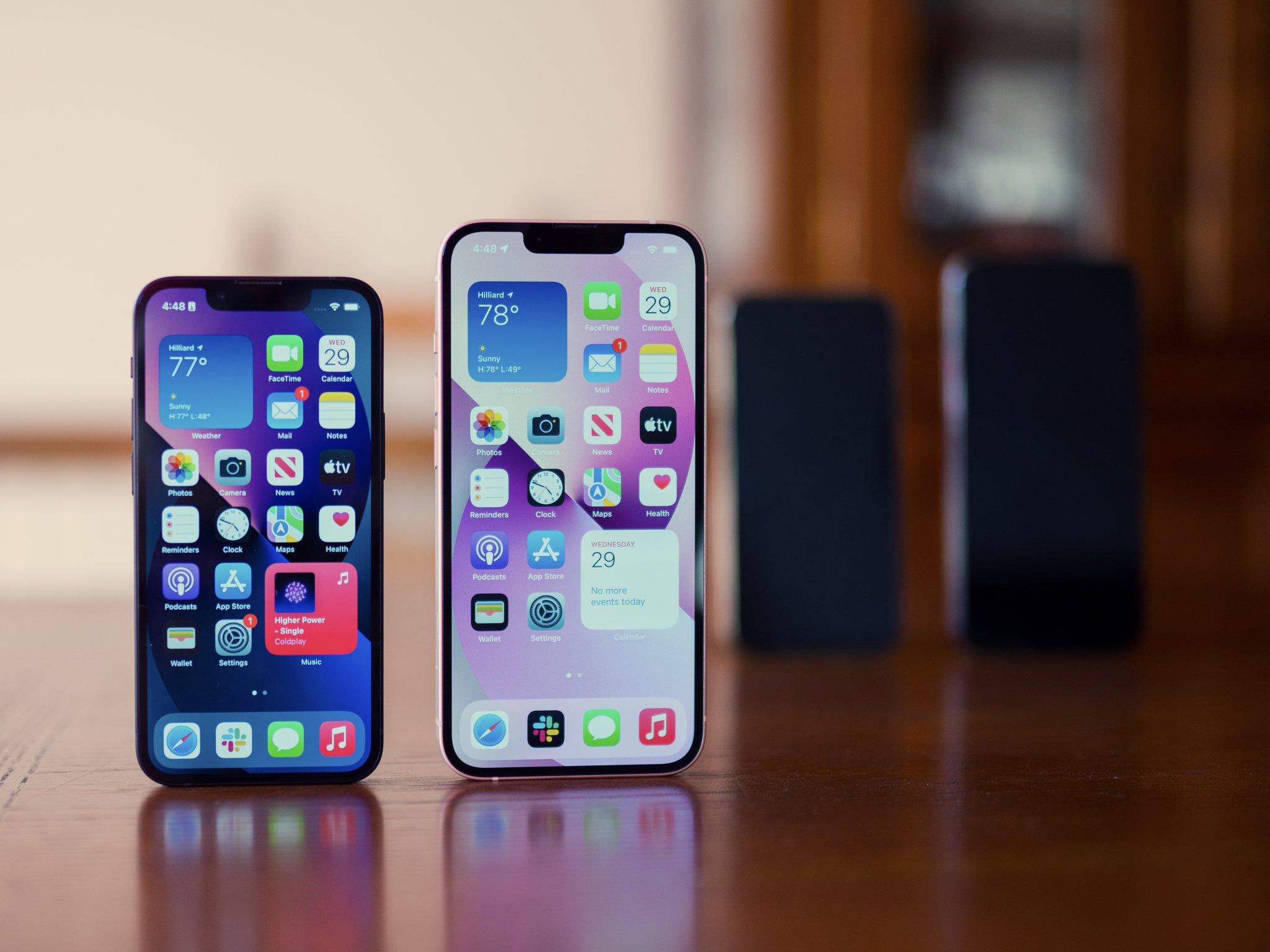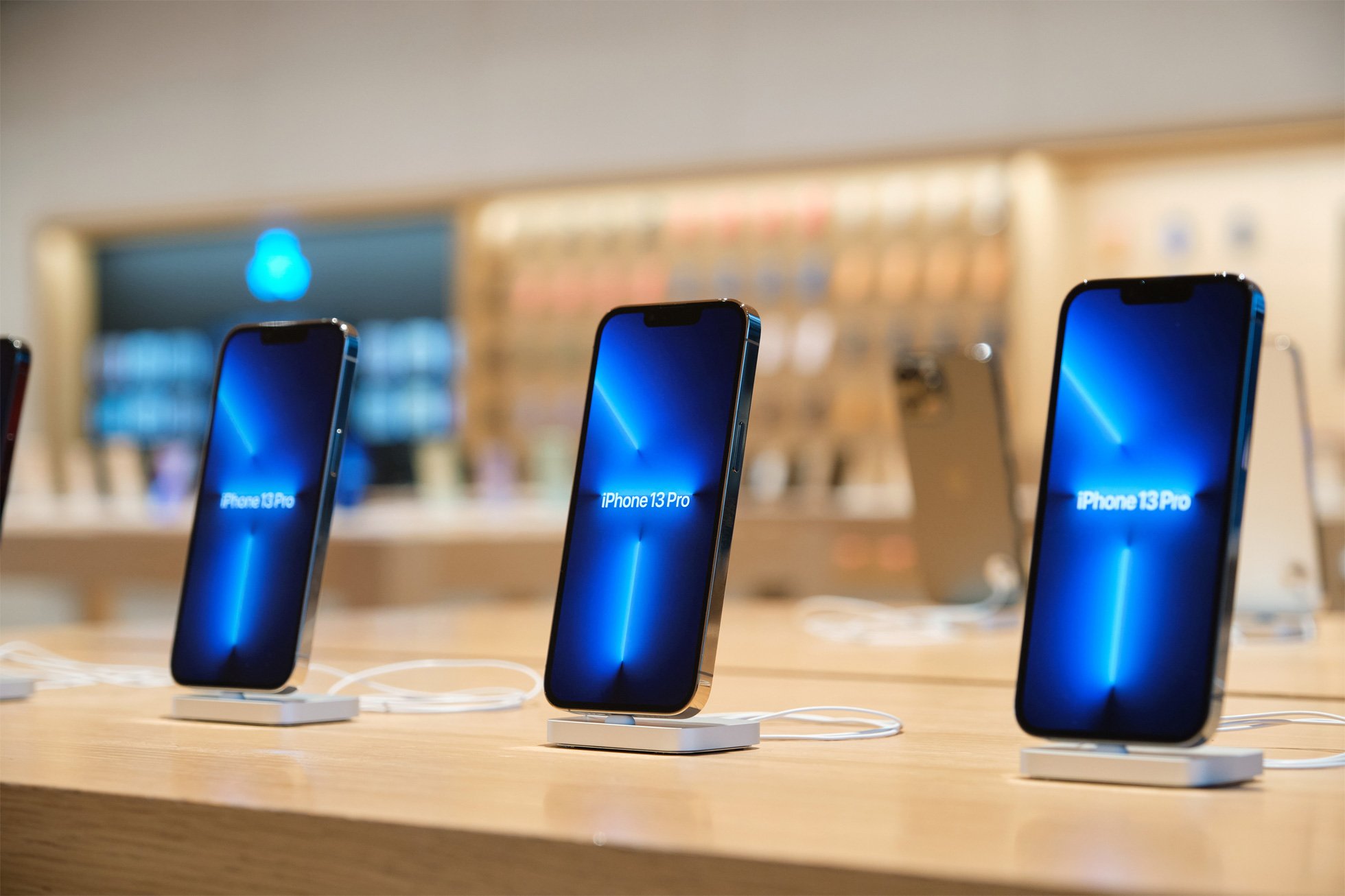iPhone in 2021: A year of quiet consolidation in the face of adversity

Even though the iPhone 13 replaced the iPhone 12 as Apple's best iPhone in 2021, in many ways this year was a tough one for Apple's flagship smartphone.
Hardware in a hard year
When Apple released the iPhone 12 last year, it seemed inevitable that the company wouldn't be able to make a similar jump two years in a row. In part, this is because that's how Apple has always done it. Despite the name, the iPhone 13 was very much a '12S' year. That isn't to say that 'S' years aren't good years, some of the best iPhone features ever have arrived in 'S' years (Touch ID, the 12MP camera, etc.). It's just to say that despite the name, we knew that the iPhone 13 would be in many ways a product of a year of consolidation. Apple made a bold design decision with the iPhone 12, reverting to the crisp, square edges of old and winding back the clock on a few years of equally bold sleek, rounded, goodness.
While Apple's new iPhone 13 may not have changed much on the outside, save some very nice new colors, it was a different story under the hood. Apple's new A15 processor shows that Apple continues to dominate the mobile processor scene, to the effect that really the iPhone's processor is really a non-issue now. When Apple releases an iPhone we don't even really talk about the processor anymore, we just sort of know that the processor will be great, will do everything we need it to do, and will never be a bottleneck to anyone's user experience. Which is kind of nice when you think about it.
Apple's stunning new iPhone 13 display gives me great hope for the future. I've absolutely loved having 120Hz on the new iPhone, and whilst it isn't something that I tend to gawp at on a regular basis, I know that I could never go back to a meager 60Hz.

Across the whole range, it was a great year for iPhone photography and cameras — as well as battery life. As I've mentioned, this was never going to be a bumper year for iPhone, because that's really the way it has always been with Apple and the iPhone. In a year of so much uncertainty, Apple chose to stick with the formula of 2020 that worked so well: four iPhones, three sizes, two Pro, two not, one year, then do it all again. Of course, you can be excited for next year, because a year of consolidation usually paves the way for some pretty bold moves in the next, so watch out for 2022.
It wasn't just a hard year for us, but a hard year for iPhone as well, notably because the iPhone was very difficult to get hold of for a lot of people. There was talk of supply disruption, Apple moving parts from iPad to iPhone to keep up, and then when it all leveled out, it turned out Apple was actually cutting production because it had overestimated demand.
Off the field
In many ways, a lot of change to the iPhone this year has come "off the field," as Apple battled swirling forces of anti-trust probes, legislation, inquiries, and of course the Epic Games trial.
Apple is facing external pressure on nearly every side to fundamentally alter the way it does business on the iPhone through iOS and its App Store. The Epic Games trial — which was set into motion last year following the Fortnite hotfix debacle, Nineteen Eighty-Fortnite, and all that jazz — concluded its first round with Apple trouncing Epic Games in court. Judge Yvonne Gonzalez Rogers ruled in Apple's favor on all but one count of Epic's lawsuit. A stunning victory in which the court ruled that Apple did not have a monopoly over app distribution on iOS, or on mobile transactions pertaining to gaming.
However, the court did rule that Apple would have to stop some of its more stringent anti-steering measures, and developers were to be allowed to add links to alternative external payments methods outside of the app store in-app. However, then a court of appeal delayed the measure because Apple said this would be too much of an upheaval to its business model. The company said the move could possibly compromise user security and privacy, as well as fatally undermine the court's ruling that it was indeed entitled to collect commission on all the transactions that are enabled by iOS.

Of course, both sides have also appealed the rulings. Apple appealed because it got too far into undoing its App Store and iPhone business model and Epic Games appealed because they totally lost.
In many ways, the legislative battles going on in various theaters around the world affect all iPhone users just as much as what hardware Apple chooses to put inside its devices, and whether it uses this or that camera in its phones.
If Epic Games and lawmakers have their way, the App Store ecosystem as we know it will be altered forever. Gone will be the single, uniform payment system of old, where you can manage your subscriptions in one place, track refunds and payments, and enter one set of bank card details held in one place by one company. Of course, at the heart of this debate is money, where it should be spent, and who should get to reap the rewards of the iOS ecosystem and 1 billion+ iPhone customer base that Apple has built with the help of developers whose apps make the iPhone an attractive mobile platform to so many.
It is likely this legal battle will drag on for many years and might never reach the conclusive outcome that either Epic Games or Apple is hoping for. I have always maintained that solutions to problems like this are best found by the companies that create these products and the customers that use them — not out-of-touch lawmakers. You know, the kind you see in videos asking tech CEOs how Facebook makes money, and why Mark Zuckerberg allows misinformation to spread on Facebook.
Summing up
The truth is, we didn't get a whole lot from iPhone this year. We got one iPhone, and it was a good bit better than the previous one, but not a bumper upgrade like the iPhone 12 was. It was great for some, enough for others, and for many more likely a chance to wait to see what 2022 has in store.
Master your iPhone in minutes
iMore offers spot-on advice and guidance from our team of experts, with decades of Apple device experience to lean on. Learn more with iMore!

Stephen Warwick has written about Apple for five years at iMore and previously elsewhere. He covers all of iMore's latest breaking news regarding all of Apple's products and services, both hardware and software. Stephen has interviewed industry experts in a range of fields including finance, litigation, security, and more. He also specializes in curating and reviewing audio hardware and has experience beyond journalism in sound engineering, production, and design. Before becoming a writer Stephen studied Ancient History at University and also worked at Apple for more than two years. Stephen is also a host on the iMore show, a weekly podcast recorded live that discusses the latest in breaking Apple news, as well as featuring fun trivia about all things Apple. Follow him on Twitter @stephenwarwick9
